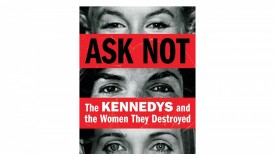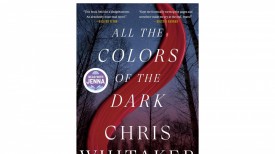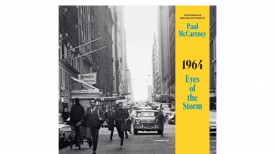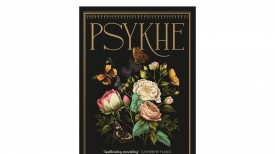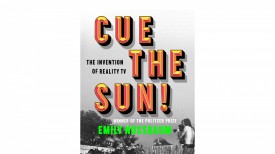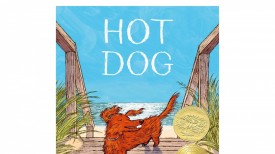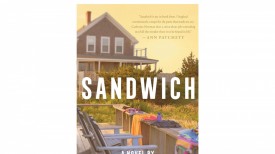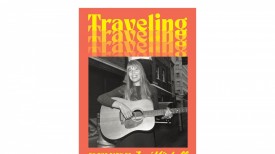'Parade' by Rachel Cusk Book Review: Another Perspective Focusing on Provocative Exploration of Gender Politics

Explore Rachel Cusk's "Parade" through a new thought-provoking lens of gender politics and artistic identity. Read our review now.(Photo : Amazon/Rachel Cusk)
Rachel Cusk, a well-known author of critically acclaimed works like the "Outline trilogy," has released her most recent book, "Parade." With this gripping read, Cusk continues to push the frontiers of storytelling.
The story follows the artist G, who begins painting upside down midway through his life, even depicting his wife in an unconventional and unflattering manner that earns acclaim. In Paris, a woman faces an unexpected attack, prompting introspection akin to an artist's critique of their work. Painter G's journey from leaving home at 22 to grappling with familial disapproval and marital conflicts is intertwined with themes of identity and legacy, culminating in a poignant exploration of freedom through a mother's death.
Following our initial review, this article looks deeper into the narrative and focuses on how Cusk tackles themes of gender politics and identity against the backdrop of the artistic world. Cusk's narrative disrupts traditional forms, profoundly portraying life's complexities and human nature.
A Deconstruction of Gender Politics and Artistic Identity
According to Andrea Long Chu's review in The Vulture, Cusk's novel spotlights gender politics. The group of artists in the story, all named G, are fictionalized versions of actual figures such as Louise Bourgeois and Norman Lewis. The narrative embraces formal experimentation, reminiscent of action painting, where abstract nouns dominate over traditional plot and character development. This approach risks creating what art critic Harold Rosenberg termed "apocalyptic wallpaper," superficially deep but lacking substance.
Themes of domesticity and maternal guilt, central in Cusk's "Second Place," resurface here with a cold and explanatory tone, often reading akin to descriptions for an art exhibition catalog. Among the Gs, the portrayal of a successful female painter who grapples with professional success and motherhood echoes Cusk's longstanding inquiry into whether women can thrive in the art world.
Bold Insights and Provocations
The novel incorporates the work of artist Georg Baselitz, known for his controversial views on female artists, which Cusk addresses through obscure mysticism rather than confronting directly as crude misogyny. While acknowledging the institutional obstacles faced by female artists and their reduction by critics to their gender, Cusk's focus remains on cryptic discussions of violence underlying female identity and the female artist's struggle with motherhood.
Cusk suggests that women who do not center their art around motherhood deny their female biological destiny in pursuit of a futile imitation of male freedom. This outlook can undermine women's achievements and self-worth.
A review in The Guardian stated that Cusk explores a controlled ferocity in her depiction of women, including herself, balancing criticism with advocacy. She examines how women often lean toward self-effacement and delve into feminine complexities and missteps. Cusk provocatively suggests that one woman was drawn to her future husband because of his disapproval.
Throughout the novel, Cusk scrutinizes how individuals, particularly women, perform in their own lives, viewing their homes as stages where they act as if constantly observed, even in solitude. She critiques the pitfalls of these performances and the desire for invisibility, which she posits as an ideal state for an artist.
Cusk challenges taboos by exploring themes such as love's ambivalent relationship with freedom and the emotional numbness that can accompany death. She provocatively questions capitalism's role in personal identity, asking if her mother was a product of capitalism.
Profound Themes of Reality and Existential Solitude
Kirkus Reviews described Cusk's writing as incisive and rich with deep insights, offering a compact yet powerful exploration of human complexities. The narrator in Cusk's novel shifts between "I" and "we," recounting personal episodes such as a scathing portrayal of her deceased mother's toxic parenting and a profound conversation at a restaurant among five individuals linked to an art exhibit disrupted by a suicide.
These conversations provoke fundamental questions across the stories: What motivates artistic creation? Do artists shape reality or perceive it? Can female artists with children achieve creative freedom akin to men? Why is family life so fraught? Beneath these inquiries lies a pervasive sense of existential solitude, resonating even in intimate relationships - a theme central to the novel's exploration.
Given its bold exploration of themes and Cusk's reputation for pushing narrative boundaries, "Parade" is a must-read for readers who appreciate thought-provoking literature and innovative storytelling.
RELATED ARTICLE: 'Psykhe' by Kate Forsyth Book Review: An Empowering Retelling of a Greek Myth
© 2023 Books & Review All rights reserved.
Popular Now
1
Books to Read After 'Fourth Wing': Top Picks for Fantasy and Romantasy Fans

2
‘The Secret Public’ by Jon Savage Book Review: An Insightful Look Into the LGBTQ Influence

3
Stephanie Regalado's 'If They Only Knew' Column Is Now A Book, Unleashing 60 Anonymous True Stories to Empower Women

4
'No Wire Hangers' Scene That Almost Did Not Happen: New Book Reveals Faye Dunaway's Struggles

5
Rare First Edition of Aphra Behn's Novel 'Oroonoko' Discovered in Kent: A Historic Literary Find

Latest Stories
Book Reviews
‘The Secret Public’ by Jon Savage Book Review: An Insightful Look Into the LGBTQ Influence

Book News
Stephanie Regalado's 'If They Only Knew' Column Is Now A Book, Unleashing 60 Anonymous True Stories to Empower Women

Book News
'No Wire Hangers' Scene That Almost Did Not Happen: New Book Reveals Faye Dunaway's Struggles

Book Reviews
‘The Perfect Couple’ by Elin Hilderbrand Book Review: A Captivating Summer Mystery

Book News
New Book ‘The Franchise’ Reveals Penguins President Kyle Dubas’ ‘Biggest Mistake’ as Maple Leafs GM

